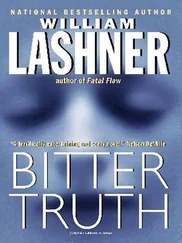“I promise.” Out of the corner of my eye I could see the officer hovering, wanting his telephone back. “I must go, someone else needs to use the telephone. I’ll give you a shout as soon as I can.”
“I’ll send Simon to you as soon as he returns.”
“Thank you. Good night. And don’t worry.”
“And you’ll tell me all about this kingfisher, won’t you?”
She put up the receiver on that note, and I turned to thank the officer trying to hide his impatience.
As I turned away, I said to the woman at Reception, “What happened across the street?”
“I don’t know,” she said. “I looked out the door just now and saw one of the constables speaking to Inspector Rother. I didn’t know he was in Hartfield this evening-he often dines with us when he’s here, and I hadn’t seen him. Someone who came in just after you said something about a fire. But I haven’t seen the fire brigade.”
I thanked her and was about to wait outside for Roger Ellis to come, when the officer using the telephone came striding out and said to the woman behind the desk, “I’m off, then. Thank you for your help.”
Off?
I stepped forward and asked, “Major? May I ask where you’re going-and if you have a motorcar?”
“Yes, I do. I’m reporting to Dover tonight. They’ve canceled my leave.”
“Please? Would you mind if I go with you? I-I’ve had a summons from Dover as well, and I’m not sure how to get there.” Holding out my hand, I said, “My name is Elizabeth Crawford. I’m Colonel Crawford’s daughter.”
“By all means, I’ll be happy to escort you to Dover.”
Turning to the woman behind the desk, I said, “Please, if Captain Ellis comes, will you tell him I will be back as quickly as possible?”
We went out to his motorcar and drove out of Hartfield, crossing the railroad tracks outside the town before turning toward Kent, and Dover, on the English Channel. He reached in the back and brought out a rug, which I pulled around my shoulders.
The night had turned cold, the stars overhead bright in the blackness of the sky, and I could feel my feet beginning to go numb from the frigid air. The heater was barely sufficient for one of them, and I kept alternating them close by the vent. Once or twice we stopped on the verge of the road and stamped some circulation back into our limbs. Major Hutton asked me at one point where I lived, and when I told him London, he said, “Then you’ve been to see the bear?”
My mind was on Dover. “The bear?” I repeated, then remembered.
A Canadian officer of the Fort Garry Horse, one Lieutenant Colebourn, had smuggled a small female black bear into England. Her name was Winnipeg, after the town where he lived. When he and his unit sailed for France, he left her in the care of the London zoo. She was enormously popular. Diana, Mary, and I had gone to see her one afternoon, and I told the Major this.
He grinned as we walked together in the glare of the headlamps, his teeth very white in the shadow of his military mustache. “I took my future wife there the first time we went out to dine. Two years ago. She’s expecting our child now, and she’s threatened to name it Winnipeg, if it’s a son.”
“Be very glad, sir, that you didn’t take her to see one of those Australian kingfishes, a kookabura.”
We laughed together, and then, blowing on our fingers, we walked back to the motorcar. I was glad of the Major’s company on this dark and twisting road.
Outside Chatham we stopped again, and later drove through the silent streets of Canterbury. It was nearly dawn when we drove down from the cliffs and into the seaside town of Dover.
It had grown with the influx of people coming from and going to France, and even at this early hour there were men lining up for roll call before being marched on board. Their faces pinched with the cold and anxiety for what lay ahead, they looked dreadfully young to me. The days when men lined up in their dozens to be the first to enlist had long since passed. Now the reality of the trenches had scoured away that bravado, and in its place were these recruits, afraid of shaming themselves in front of their mates but probably wishing themselves anywhere but here.
The Major asked me to drop him near a cluster of officers standing some distance away from the Sergeants barking orders.
“If you will, take the motorcar to HQ. Someone there will see to it. Do you have time?”
“Yes, sir.” I took the wheel and went first to the police station. But they knew nothing about an Australian Sergeant, and so I went to find the officer in charge of the port.
He was sitting in a cramped office that overlooked the sea. It was filled with paperwork, with ships’ manifests, lists of supplies destined for France and no doubt roll after roll of names, and all the other paraphernalia of getting men and materiel across the sea to France.
He looked up as I was admitted, rising tiredly from his chair. “Sister,” he said.
“Good morning, sir. Sister Crawford, sir. I’m sorry to disturb you, but I understand there’s an Australian Sergeant who is in Dover, possibly without his proper papers.” I’d had the long dark ride across Kent to think about what I should say.
I’d expected a blank stare. But he said, “Ah, yes. I think he’s being held in one of the huts under guard. Number seventeen. He says he has a head wound and can’t remember much after the forward dressing station. It’s likely he came from the Base Hospital in Rouen, judging from his blue uniform. He can’t remember how he got aboard a ship. He claims you’ll be looking for him.”
“Yes, sir, he’s been quite troublesome, wandering off,” I said, feeling my way. “Er, how does he look?”
“His hair is singed, he has no eyebrows, and his hands are badly burned. I had someone take a look at him.”
He hadn’t been burned when last I saw him. “He’s not accountable,” I said.
“I should think not. When he’s questioned, he breaks out in crazed laughter. It gave me quite a start the first time I heard it. He was brought here because he was stopped on the street and couldn’t account for himself.”
More bewildered than anything else, I said, “I think I ought to have a look at him. We need to return him to France as soon as possible. He’ll have been reported missing by now.”
“You’ll be careful? I’ll send one of my men with you.”
“I’ll be all right,” I told him, not wishing to have an audience when I found Sergeant Larimore. Gesturing to the cluttered desk in front of him, I said, “You have enough on your hands this morning. I saw the recruits preparing to report.”
“Yes, poor devils. Thank you, Sister Crawford. Any relation to Colonel Crawford and his family?”
“He’s my father.”
“Is he, by God!” His attitude warmed considerably. “Tell me what you need, Sister, and I’ll see that you get it.”
I thanked him and went out. The port was cluttered and crowded. I managed to find the line of huts. They turned out to be temporary housing for any number of offices associated with the smooth running of the port. Number seventeen, set to one side of the rest, had a soldier on guard by the door.
With a sinking heart, I walked up to the soldier, a grizzled veteran with a decided limp, and told him I’d been asked to take a look at his charge.
“I don’t think it’s safe, Sister,” he warned me. “He’s right barmy, is that one.”
“I’ve handled worse cases. They seem to respond to the uniform,” I said pleasantly.
With some reluctance, he stood aside. “I’ll stay within call,” he promised.
I went to the door. It was, to my surprise, unlocked. I walked in as the first late rays of winter sun rose over the horizon and sent a shaft of light across the gray Channel to wash the drab, salt-stained huts a pale gold.
Читать дальше












